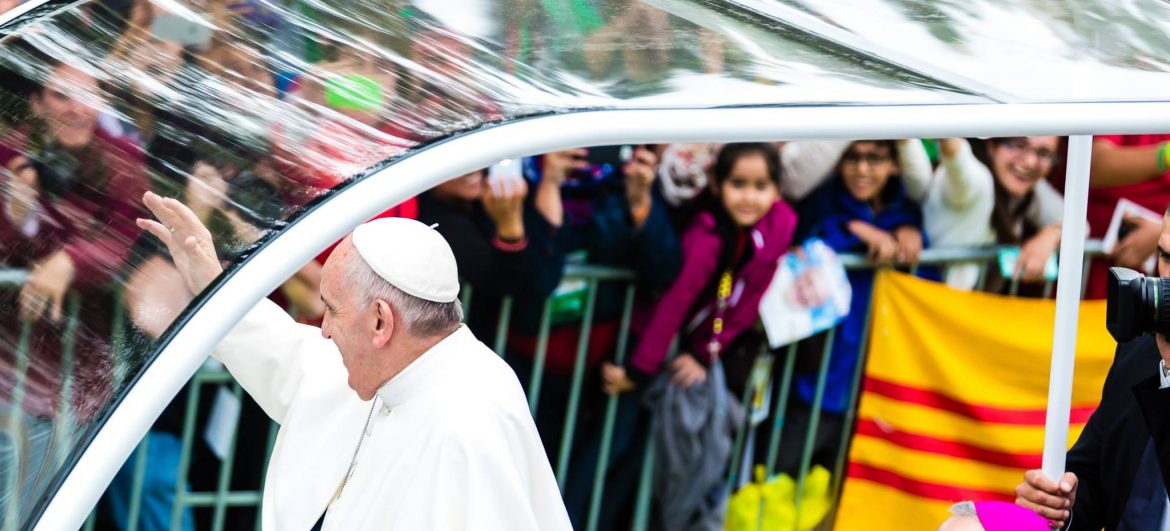Quis autem velum iure reprehe nderit. Lorem ipsum dolor sit nulla or narjusto laoreet onse ctetur adipisci.
Quis autem velum iure reprehe nderit. Lorem ipsum dolor sit nulla or narjusto laoreet onse ctetur adipisci.

As UN sets to approve compacts on migration, Vatican official says more to be done
Last month, faith leaders gathered at the United Nations to discuss the the Global Compact on Refugees.
The Global Compact on Refugees was signed in 2016 and it along with another compact on Safe, Orderly and Regular Migration are both expected to be adopted by the United Nations at the end of 2018.
Both agreements have been strongly supported by Pope Francis, who has taken a particular interest in the plight of migrants and refugees.
In his Message for the World Day of Peace that kicked off 2018, Francis pointed out four signposts for action: Welcoming, protecting, promoting and integrating refugees. The task of the Refugees and Migrant section of the Vatican consists of ensuring that those points are heard globally.
The Section is technically part of Dicastery of Integral Human Development but two of its Undersecretaries: Jesuit Michael Czerny and Scalabrinian Fabio Baggio are running it under personal supervision of the pope.
Scalabrinian Father Fabio Baggio, who works with Czerny, told Crux that one of the Vatican’s recommendations was a call for a global strategy and sharing responsibilities among states – “and we’re not calling it management but governance, because we are talking about people. They are not things nor numbers.”
The Vatican was an active contributor to the Global Compacts, which will be signed at the UN Intergovernmental Conference in Morocco in December 2018.
The idea of the Global Compacts is to protect migrants from their country of origin to the point of arrival, also helping countries to receive them. This is an urgent need, since about 60 percent of the world’s refugee population lives in around 10 countries, all in the global south.
What will happen in Morocco is not the end but the beginning, Baggio said.
“The Global Compacts are not a resolution, a binding document. Signing them in December will only be a first step in helping migrants,” he said.
The key element will be its implementation. The Vatican observers at the conference will promote a constructive dialogue and bring to the negotiating table what the bishops’ conferences around the globe can do to help.
For Baggio, this is an example of how the Vatican has become a place to go for governments willing to improve the situation of migrants and refugees:
“Several governments already approached us with the idea of starting a dialogue of the implementation of the Global Compacts. Technical solutions like human corridors and sponsorship programs for refugees have been discussed,” the priest said.
Global leaders – said Baggio – encouraged the pope to keep advocating for refugees. “Several influential people and high-ranked authorities came to me to ask – please tell the pope to keep on speaking about migrants and refugees, because his is the only voice which has remained.”
When the media gets tired of covering refugees, governments start ignoring the issue. That’s why – the priest added – the pope keeps on talking about them: “Refugees and migrants are suffering people to be healed, to be assisted, the poor people, the marginalized people, depressed people who should be saved.”
The mission of this Vatican team was clearly marked out by the pope when he visited their office.
Baggio recalled that Francis said, “This is my idea of the Roman Curia: All its offices should to be at the service of the local churches.”
“Our task is assisting the local churches with our reflections and resources, so that they can act – the action is entrusted to the local churches,” Baggio said.
The issue of migration has also been discussed at the ongoing Synod of Bishops meeting on young people.
Helping local Churches includes praising their good work. Regarding the situation of migrants in America, Baggio praised the U.S. bishops’ conference for “doing a great job in continuous dialogue with the government also stressing the points of the social doctrine of the Church.”
In his conversation with Crux, Baggio pointed out that one of the solutions in assisting young refugees and migrants is education, and challenged Catholic universities to act: “It is responding by fulfilling their mission – which is, through education, introducing the main values of the Catholic faith, that includes welcoming, protecting, promoting and integrating migrants and refugees.”
The Vatican official named specific solutions: Scholarships, recognition of academic titles, online programs, and sending teachers to refugee camps or to locations where there are migrants.
“This is a part of charity work that we are called to do,” said Baggio. “It‘s a part of or duty of justice which is also sharing our resources with those who have less – and it’s a good investment.”
He said Catholic universities are also on the front lines because of their role in educating the new generations to be open to those who are different, to the foreigner and stranger.
For Baggio, “it is a duty that Catholic universities have, as trainers of the leaders of the future, as will become evident in the conference being organized in New York this November.”
Original post: https://cruxnow.com/vatican/2018/10/23/as-un-sets-to-approve-compacts-on-migration-vatican-official-says-more-to-be-done/

You must be logged in to post a comment.